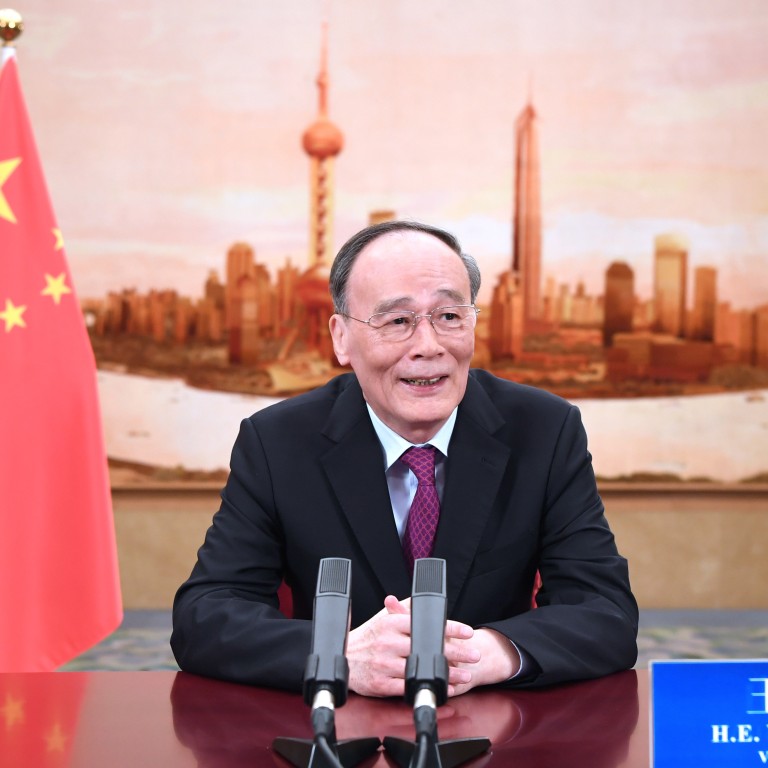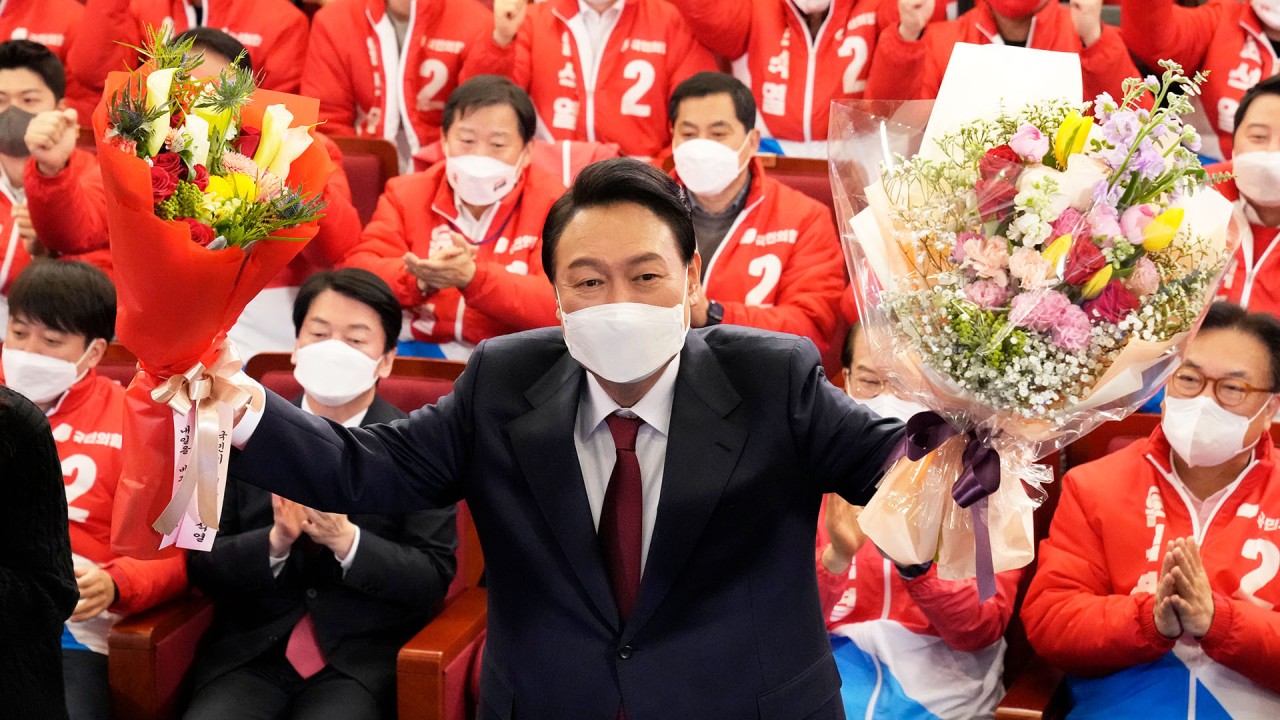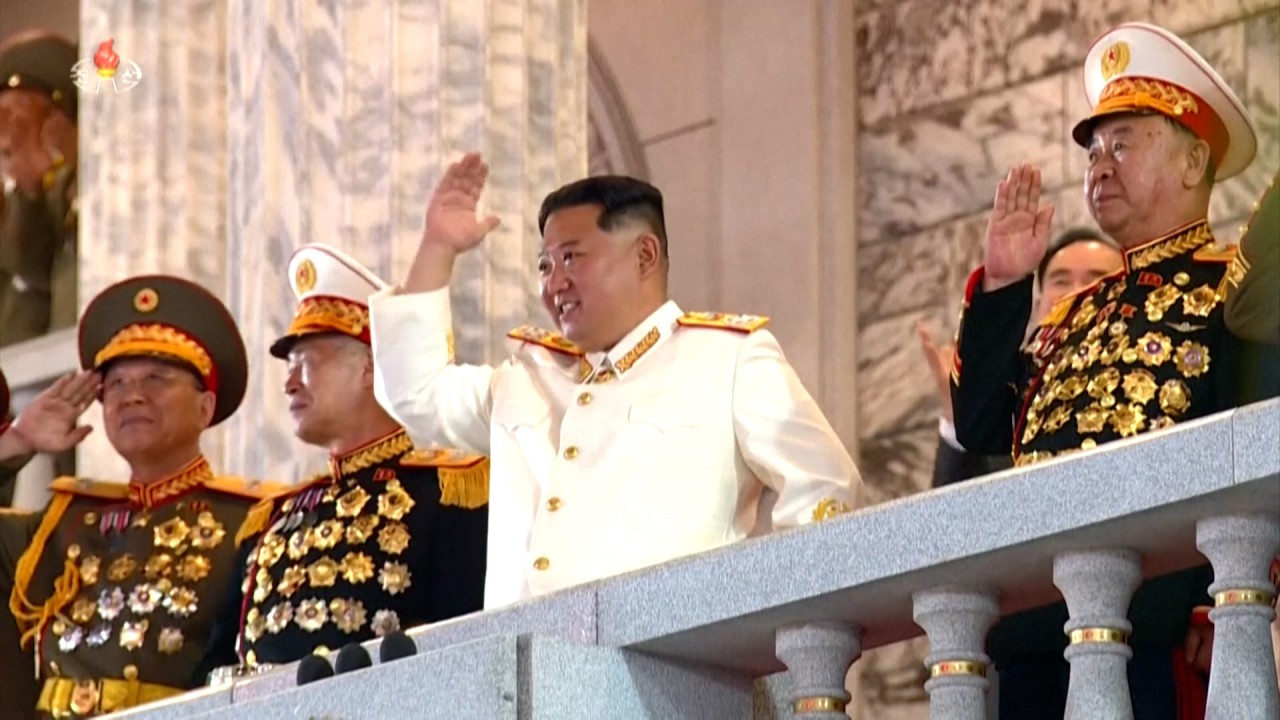
Chinese vice-president on rare trip abroad to win over South Korean leader
- Wang Qishan will attend South Korean president-elect’s inauguration, signalling Beijing’s focus on ties with Seoul
- Joe Biden will also be in the region to meet Yoon Suk-yeol
South Korea and China “ are important cooperation partners as well as close neighbours”, foreign ministry spokesman Zhao Lijian said, announcing the trip.
Chinese leaders have made few overseas trips since the Covid-19 pandemic erupted in 2020.
The rare trip by a senior leader signals the importance Beijing attaches to relations with Seoul amid tensions with Western countries, particularly the United States, and an economic slowdown at home.
The United States is sending Douglas Emhoff, husband of Vice-President Kamala Harris, as the head of its delegation to the inauguration.
Japanese Foreign Minister Yoshimasa Hayashi will make a two-day trip to Seoul from Monday as Prime Minister Fumio Kishida’s special envoy.
US President Joe Biden will visit South Korea after the ceremony and meet Yoon on May 21 before travelling to Japan to meet Kishida.
Biden and Kishida will also meet the Australian and Indian prime ministers at a gathering of the Quad security group.
What is the Quad, and how will it impact US-China relations under Biden?
“Obviously, both China and the US are striving to win over South Korea,” said Pang Zhongying, a professor of international relations at the Ocean University of China in Qingdao.
China is watching closely how Yoon will balance his foreign policy priorities of improving its alliance with the US and Japan, while also stabilising relations with China.
“A pro-US president would pose a challenge to China’s foreign policy. Wang’s trip shows China’s strong desire to manage a good relationship with South Korea on fronts from the economy to security,” Pang said.
Yoon has taken a harder stance on China than outgoing liberal president Moon Jae-in, who has placed considerable importance on ties with the world’s No 2 economy, both in terms of trade and its ability to help negotiate with North Korea.
China is by far South Korea’s biggest trading partner, accounting for about a quarter of South Korea’s exports last year, helping push bilateral trade to a record US$301.5 billion.
But the rivalry between Beijing and Washington poses a dilemma for Seoul, which must balance its economic ties with China and its traditional security relationship with the US.
Sun Xingjie, an expert on northeast Asian affairs at Jilin University in China, said ties had been close but China saw room for expansion.
“The two countries have maintained close economic and trade relations in recent years,” Sun said.
“As it enters into the 30th year since China and South Korea established diplomatic relations, China would like to consolidate the relations and expand their cooperation from trade to technology and security.”
Why the Quad’s OK with India – not China – giving Russia economic support
Gu Su, a political scientist at Nanjing University, said Chinese diplomats were likely to offer friendlier messages to world leaders at the inauguration, underlining Beijing stress on developing closer ties with neighbouring countries.
Chinese officials have also pledged to further open up the economy following concerns raised by foreign businesses over disruptions caused by Covid-19 pandemic control measures.
Gu said that only Japan was more important than South Korea to the US in East Asia, and Beijing had to consolidate ties with Seoul by boosting economic cooperation.



